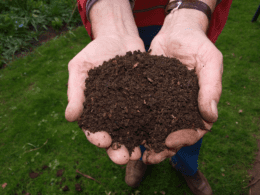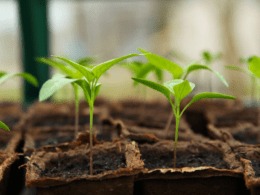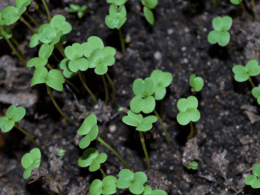Are you looking for a way to make your garden thrive? Look no further than Perlite! This versatile material has a range of benefits that can help your plants grow stronger and healthier.
Perlite is a popular soil amendment that can improve soil aeration, moisture regulation, and root development. This means better growing conditions for your plants, which can lead to bigger yields and more vibrant flowers.
Whether you’re a seasoned gardener or just starting out, Perlite is a must-have in your gardening toolkit. In this article, we’ll explore the advantages of using Perlite in your garden, including its uses, growing information, and different grain sizes.
Discover how Perlite can help you achieve the garden of your dreams!
Quick Takeaways
- Perlite is a versatile material used in commercial, industrial, and horticultural products, including soil amendment, filtration, hydroponics, and plant cuttings.
- Perlite is safe to handle, non-toxic, and has excellent insulating and moisture-regulating properties.
- Perlite is available in different sizes and is ideal for filling pots to start seeds or grow cuttings and for hydroponic garden systems.
- Adding Perlite to soil helps reduce the risk of root rot, allows for excess water drainage, keeps soil from compacting, and reduces soil acidity.
How Can Perlite Benefit the Composting of Mushrooms?
Perlite, a lightweight and porous mineral, offers various benefits for composting mushrooms. Its moisture retention capabilities help maintain an ideal level of humidity, promoting healthy mycelium growth. Using perlite in the substrate mix aids in water drainage, preventing the substrate from becoming waterlogged. These composting mushrooms benefits tips enhance the efficiency and success of mushroom cultivation by creating an optimal environment for their growth.
Uses and Applications
You can use Perlite in various ways for your garden, such as soil amendment, filtration, hydroponic systems, and plant cuttings. This makes it a versatile addition to your gardening supplies.
Perlite filtration media is commonly used to filter water in hydroponic systems and aquariums. It is also used as a soil amendment to increase the drainage and aeration of heavy soils, allowing plant roots to breathe better and grow healthier.
In hydroponic systems, Perlite is used as a growing medium, providing a clean and sterile environment for plants to grow. It’s lightweight and provides excellent drainage, preventing water-logging and root rot.
Perlite is also used to start plant cuttings, as it provides the ideal environment for root development. Whether you’re a beginner or an experienced gardener, Perlite is a valuable addition to your gardening supplies.
Advantages for Gardening
Increase soil aeration, regulate soil temperature, and reduce the risk of root rot using Perlite as a growing medium in your garden. Perlite is a natural mineral that’s heated and expanded to create a lightweight, porous material that improves soil quality. Here are four benefits of using Perlite in your garden:
- Perlite improves soil aeration, allowing for proper oxygen flow to the roots of your plants.
- Perlite regulates soil temperature, keeping it cool during hot weather and warm during cold weather, which helps your plants thrive.
- Perlite reduces the risk of root rot by allowing excess water to drain off, preventing waterlogged soil.
- Perlite is easy to use and cost-effective, making it an ideal soil additive for both indoor and outdoor gardening.
Whether you’re a beginner or an experienced gardener, Perlite is a valuable addition to your gardening toolkit. It’s perfect for starting seeds, growing cuttings, and improving soil quality in both potted plants and garden beds. With Perlite, you can create a healthier environment for your plants, leading to stronger growth and better yields.
Types and Sizes Available
When shopping for gardening supplies, don’t forget to check out the different sizes and types of Perlite available to find the best fit for your plants.
Perlite comes in different grades, including coarse, medium, and fine grain, each with specific benefits for gardening. Coarse-grain Perlite is best for plants that need high levels of moisture, while fine-grade Perlite is best for plants that require better control of the moisture balance in the soil.
Perlite is a versatile material that can be used in a variety of gardening applications. It can be added to soil mixes to improve soil structure and aeration, or used as a standalone growing medium in hydroponic systems.
Whether you’re starting seeds, growing cuttings, or planting in containers, Perlite can help promote healthy root growth and prevent issues like root rot. So, consider adding Perlite to your gardening supplies and take advantage of its many benefits for your plants.
Frequently Asked Questions
Is Perlite environmentally friendly and sustainable?
Perlite production impact is relatively low compared to other materials, but there are eco-friendly alternatives. While perlite is not biodegradable, it can be reused and recycled, making it a sustainable option for gardening.
Can Perlite be reused or recycled?
Yes, Perlite can be reused and recycled. After use, simply rinse and dry the Perlite before reusing it. Recycling involves grinding used Perlite into smaller particles to be used as a soil amendment or in other industrial applications.
How does Perlite compare to other soil amendments, such as vermiculite or peat moss?
Perlite is a better soil amendment than vermiculite or peat moss because it provides aeration, drainage, and insulation, without decomposing. Vermiculite retains moisture too well, while peat moss is acidic and environmentally harmful.
Are there any plants that should not be grown in Perlite?
Some plants may not be compatible with perlite as their growing medium. In such cases, consider using alternative soil amendments like vermiculite or peat moss. Always research the specific needs of your plants before choosing a growing medium.
Can Perlite be used in aquaponic systems?
Yes, Perlite can be used in aquaponic systems. It is a great option for hydroponics because it provides excellent drainage and aeration for the roots. Perlite irrigation can also help maintain moisture levels in the system. Enjoy the benefits of perlite in hydroponics.









